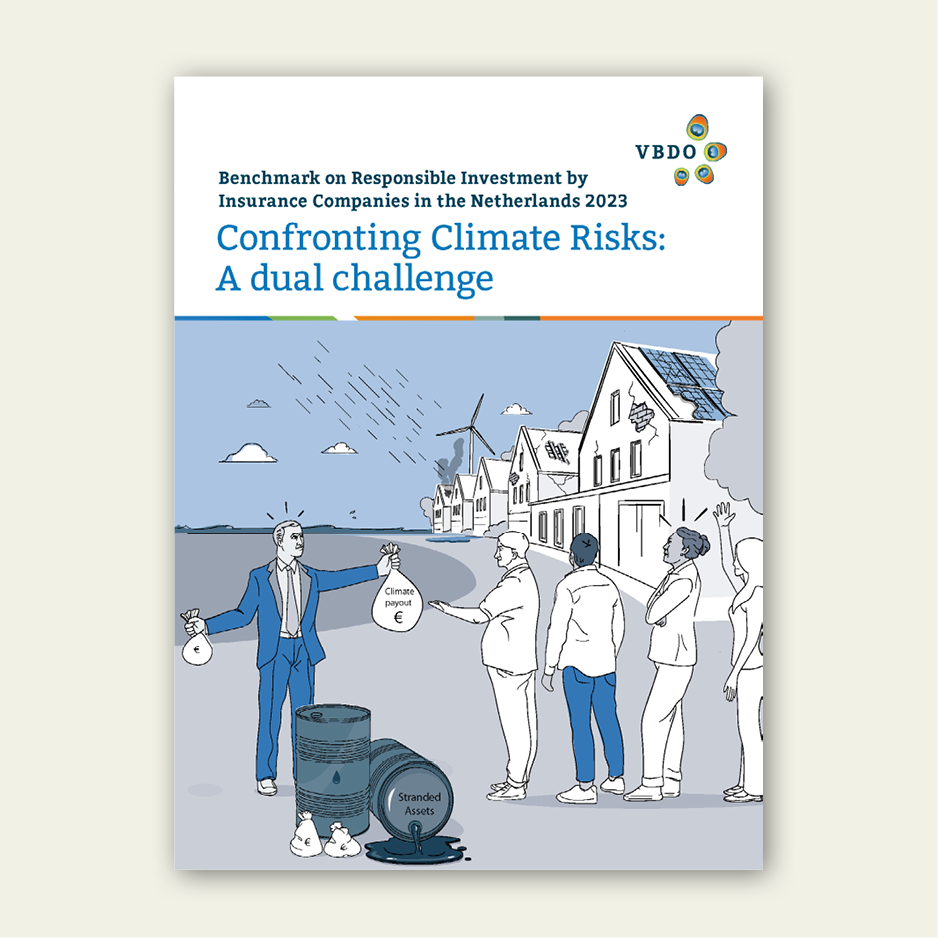The number of climate disasters is increasing rapidly. Dutch insurers feel this climate risk on two sides: the opportunities and risks of their investments and rising costs due to claims payments, according to research by the Association of Investors for Sustainable Development (VBDO), among others. The survey also shows that Athora Netherlands, with brands like Zwitserleven among them, emerges as the most sustainable insurer.
Athora Netherlands leading the ranking
The VBDO research shows that Athora Netherlands leads the list as the most sustainable insurer with a score of 4.5 out of 5. A second position with a score of 4.2 is reserved for a.s.r. and Achmea ends in third place with also a rounded 4.2. Klaverblad (from 16 to 11) and Univé Group (from 13 to 8) both climb by five positions, making them the fastest risers this year.
Jan de Pooter, Chief Executive Officer of Athora Netherlands: ‘Sustainability is an integral part of Athora Netherlands’ strategy and investment policy. I am therefore proud that this is recognized by VBDO in their benchmark. It is only an additional encouragement to continue using our expertise for this purpose. I also find it very positive that we as an insurance sector continue to make good progress together with regard to sustainability. This is all the more important given the major climate challenges we all face.
Athora Netherlands, like virtually all Dutch insurers by now, pays extensive attention to the issue of climate change. For example by talking to companies they invest in and asking for improvements on this topic. Especially since the consequences of climate change carry the necessary risks for both their role as investors and within their more traditional role as insurers.
Stronger role of government expected in energy transition
Insurers are calling for more government guidance on the energy transition. ‘To help this transition move forward, it is essential that the government defines transition paths for all relevant sectors,’ Richard Weurding, managing director of the Insurers’ Association, said in a response to the report. ‘Then public/private financing will also get a boost by the government covering unprofitable tops, for example, or offering guarantees. Investing in sustainable long-term projects, such as hydrogen, then becomes really interesting.’
Extreme weather puts pressure on claims costs
Whereas sustainability for insurers started with sustainable investment almost 15 years ago, there is now an increasing focus on insurability. Weurding explains: ‘Due to climate change, natural disasters are increasing. We see that trend in our Climate Damage Monitor where we have been tracking claims due to weather extremes, such as precipitation, hail and storms, since 2007.’
To keep the ever-increasing claims burden from weather extremes insurable, Weurding says we need to look not only at prevention but also, for example, at how we organize our country to prevent and limit damage.
Angélique Laskewitz, director of VBDO adds, ‘The challenges facing insurers are complex. Governments and policymakers should therefore indeed be seen as important collaborative partners in developing and implementing solutions. For their part, insurers often make written appeals but do not yet engage directly enough with national or international governments. One reason for this, for example, is that they do not know who to contact. So here is still a role for both parties to find each other better.’

